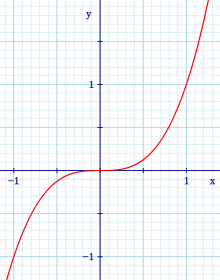Plateau effect
This article may lack focus or may be about more than one topic. (May 2023) |

The plateau effect is a phenomenon that lessens the effectiveness of once effective measures over time. An example of the plateau effect is when someone's exercise fails to be as effective as in the past, similar to the concept of diminishing returns. A person enters into a period where there is no improvement or a decrease in performance.[1][2]
Overview
The plateau effect may appear in
The plateau effect is also experienced in
Health and fitness
In fitness, the Exercise Plateau Effect refers to when a body becomes accustomed to a certain stimulus and thus ceases to respond to it.
Television ratings
According to industry consultant Gary Kahan, a television show's ratings plateau after the show reaches a "crescendo" and then slowly decline over time. .[9]
Paradox of the pesticides
An example of the plateau effect is found in the paradox of the pesticides. The paradox states that applying pesticide to a pest may end up increasing the abundance of the pest if the pesticide upsets natural predator–prey dynamics in the ecosystem.
Paradox of the pesticides in testing
In testing, when the same test case is run repeatedly on a product under test, the test case becomes ineffective and may induce costs, notably in maintenance.[10]
The "deliberate practice" theory
In the book Moonwalking with Einstein by Joshua Foer, a theory called "deliberate practice" is brought up. The theorist that came up with this theory was K. Anders Ericsson who said: "Our civilization has always recognized exceptional individuals, whose performance in sports, the arts, and science is vastly superior to that of the rest of the population".[11]
This quote coincides with the three stages because these would be the main topics or ideas that would come in mind to reach the plateau effect in many of people. When these conditions are met, practice improves accuracy and speed of performance on cognitive, perceptual, and motor tasks.[12]
Three stages
The plateau effect was mentioned in the book Moonwalking With Einstein by Joshua Foer. The book mentions the three stages that lead up to "The Plateau Effect"; the theory of the three stages was created by Fitts and Posner. These men base the stages on the theory created by K. Anders Ericsson. The first stage of the plateau effect is the cognitive stage which means “You’re intellectualizing the task and discovering new strategies to accomplish it more proficiently.”[13] The second stage is the associative stage which means “You’re concentrating less, making fewer major errors, and generally becoming more efficient.”[13] The last and final stage is autonomous stage (aka the plateau effect) which means as “When you figure that you’ve gotten as good as you need to get at the task and you’re basically running on autopilot.”[13] Reaching the final stage of the plateau effect starts the mental exercises to keep the mind guessing.
The Plateau Effect: Getting From Stuck to Success
The Plateau Effect was popularized in application to daily life by
References
- ISBN 0-7487-5303-6.)
{{cite book}}: CS1 maint: multiple names: authors list (link - ISBN 0-89793-328-1.)
{{cite book}}: CS1 maint: multiple names: authors list (link - ISBN 978-0-415-47617-1.
- ^ Lyster, R.: Differential effects of prompts and recasts in form-focused instruction. In: Studies in Second Language Acquisition #26 (2004), pp. 399-432.
- ISBN 978-0-7637-5642-0.)
{{cite book}}: CS1 maint: multiple names: authors list (link - ISBN 978-0-8400-3390-1.
- ^ Fontanilla, Kamila. "Overcoming the Exercise Plateau Effect". Seattle Athletic Club.
- ^ Lawrenson, Doug (February 2007). "9 Steps to Eliminating a Plateau". Muscle and Strength.
- ISBN 9781587432019.
- ^ "ISTQB Foundation: 1. Fundamentals of Testing".
- ^ K. Anders Ericsson; Ralf Th. Krampe; Clemens Tesch-Romer (1993). "The Role of Deliberate Practice in the Acquisition of Expert Performance" (PDF). Psychological Review. 100. No. 3: 363–406.
- ^ Fitts & Posner; Gibson; Welford, The Role of Deliberate Practice in the Acquisition of Expert Performance
- ^ a b c "Joshua Foer on Deliberate Practice". 23 May 2013.
- ^ Schawbel, Dan. "Bob Sullivan: How Plateaus Prevent You From Career Success". Forbes.
- ^ Coffey, Laura (2 May 2013). "Hey, high-achieving women! Here's how perfectionism holds you back". Today.
- ^ Sullivan, Bob; Thompson, Herbert H. (2013-04-30). "What is the Plateau Effect?". Huffington Post.
- ^ "How Netflix could suffer Blockbuster's fate".
- ^ "The Plateau Effect: Why People Get Stuck...and How to Break Through". SlideShare. May 2013.
